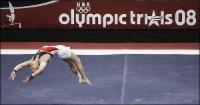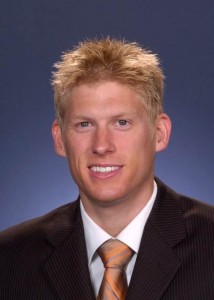Healing from Without and Within: Resiliency Lessons from Olympians Sunisa Lee and Justin Spring.
By Paul Terry, Ph.D., HERO Senior Fellow and Proud Minnesota Gymnast.

We Minnesotans have been ‘birging’ on Sunisa “Suni” Lee’s Tokyo Olympic comeback story. That is, we’re ‘basking in reflected glory,’ as news of her astonishing resilience keeps unfolding. Post COVID-19 interruptions to training, post serious injuries, and post the surprising change in the USAGymnastics team lineup after Simone Biles took some time to focus on her mental health; Suni has bounced back from each with the grace and determination so ingrained in elite gymnasts. The story has been all the richer as the determination of her Hmong community and her father’s recovery from a paralyzing injury is layered into the details of all that Suni, her family, and families like hers, have been through.
We are weeks away from hosting HEROForum21’ in Austin, Texas (Oct. 11-15, 2021). Our theme is: “Bouncing Back: Boosting Mental Resilience and Building Organizational Immunity.” Many journalists have thoughtfully coupled Suni’s resilience story with the dark history of the Hmong who fled from post the Vietnam War atrocities. For those interested in the interaction of healing and culture-specific to Hmong beliefs, a book I named as one of the “Best Health Promotion Books of all Time” was Ann Fadiman’s book: “The Spirit Catches You and You Fall Down.” Fadiman’s book is a study in cultural competence (and incompetence) and medical anthropology as she follows Lia Lee, a Hmong child with epilepsy. Mistrust, mistreatments, and the tensions between assimilation and discrimination within and between communities are chronicled brilliantly, and soberingly, by Fadiman. And it is just such issues that we plan to address at HEROForum21, as we also struggle through the pressures that organizations are feeling as they address the syndemic of COVID-19, vaccine hesitancy, and racial strife that have been defining this past year.
Sport has always afforded us powerful metaphors and examples we can use as we create solutions to difficult issues. Last year’s Forum featured Olympian Jesse Diggins and her personal experience with eating disorders as she helped us consider new ways for employers to achieve collective well-being. At Forum21, I’m thrilled for the chance to sit down with two Olympic gymnasts, Justin Spring and Wendy Bruce-Martin, to discuss their ideas about both individual and organizational resilience. Like Suni Lee, Justin Spring had to bounce back from serious injuries going into the Olympics. Coincidentally, both Spring and Suni Lee were sidelined for months just prior to their respective Olympic trials. Worse, Spring injured his ankle just as a knee injury was healing. A New York Times article about his resilience noted that he was ‘now favoring both legs’ to which Spring observed: “Wait, is that even possible?”
 Currently, Justin Spring is the head coach for University of Illinois men’s gymnastics, and at the time of this interview, he was in Tokyo, Japan supporting team USA and one of his Illini gymnasts who qualified for the Australian Olympic team. Leading up to his team bronze medal in the 2008 Olympics in Bejing, Spring was a four-time NCAA champion, 13-time All-American, three-time Big Ten champion, and the 2006 Big Ten Gymnast of the Year. Spring also won the 2006 Nissen-Emery Award, an honor (like the Heisman Trophy) that goes to the top male gymnast in the nation.
Currently, Justin Spring is the head coach for University of Illinois men’s gymnastics, and at the time of this interview, he was in Tokyo, Japan supporting team USA and one of his Illini gymnasts who qualified for the Australian Olympic team. Leading up to his team bronze medal in the 2008 Olympics in Bejing, Spring was a four-time NCAA champion, 13-time All-American, three-time Big Ten champion, and the 2006 Big Ten Gymnast of the Year. Spring also won the 2006 Nissen-Emery Award, an honor (like the Heisman Trophy) that goes to the top male gymnast in the nation.
With highly publicized revelations about mental health issues from all-time greats like Simone Biles, Michael Phelps, Naomi Osaka, and others, would Spring have taken a different approach to his recovery today than he did 14 years ago? For that answer you will need to join us in Austin, Texas as Spring, Bruce-Martin and, psychiatrist, Dr. Nadia Charguia take the main stage on Thursday, October 14th. Until then, here is an excerpt of an interview with Justin Spring. HERO will link you to the full open access interview to be published in the American Journal of Health Promotion in the coming weeks.
Paul Terry: Justin, you struggled with serious injuries and, in spite of limited training, came through with peak performances to qualify for the Olympics. It’s tempting to credit elite athletes with superhuman qualities but can you describe in normal human terms how you bounced back from such high-stakes public setbacks?
Justin Spring: I had three surgeries towards the end of my competitive season in 2006 and then tore my ACL one year out from the Olympic Games in 2007. It is very mentally challenging to work through injury, especially back-to-back injuries when you have big goals spread throughout the timeline. After months of rehabilitation from the shoulder surgery in 2006, it was especially disheartening to tear my ACL in 2007 and continue to go through the long, strenuous recovery process. All I wanted was to perform elite-level skills to prepare for my goal of the Olympics, and instead, I was moving my knee like an inch-worm trying to regain normal range of motion. Through all my injuries, I learned to do a really good job of rewriting the “story” in my head for how my career would go. Each surgery became another obstacle that I would overcome to be the “comeback kid.” I became the hero in a movie that would come back and win a medal, or make the team, or accomplish whatever the mission was. Each time there was another injury or surgery, I remember telling myself, “What a crazy story this will be!” Don’t get me wrong, I had really down moments after untimely injuries, but coming back and remaking the team always got me re-energized and back on track.
Paul Terry: I so admired how Simone Biles modeled what it takes to overcome the stigma related to mental health by putting her own emotional health ahead of the pressure she was feeling in the recent Tokyo Olympics. What systems have you put in place for Illini gymnasts that enable athletes to bounce back from setbacks?
Justin Spring: I think one of the most important things a coach can do is create a strong team culture where the team feels everyone is invested in the mission and there to support one another. Coach-led teams are good teams, but player-led teams are great teams! As the head coach at Illinois, I hold a lot of team meetings, but twice a week we have meetings that deliberately get the athletes talking about things outside of our gymnastics mission. Meeting topics range from politics, leadership, current events, and really anything that gets the team talking. Creating a safe space to respectfully have differing opinions can make people feel vulnerable, but that feeling is critical to strengthening our team support system. Another way we keep things in perspective in a highly competitive environment is by committing time to help our athletes develop skills for post-graduation. We really want to win, but we have other very important goals for developing our players too. We always tell our guys, we have 25 coaches in the gym, not just the listed three on the website; that way there is always something to do to help or advance your team. Their contributions to the program aren’t tethered to their scores in competition. Lastly, we have a step-by-step mental training program that we go through every year in addition to other mental toughness exercises we do to help focus and guide the athletes.
We featured Dr. Amy Edmondson in a HERO webinar and HERO interview where she discussed how leading organizations foster psychological safety at work. Acceptance of individual differences, dissenting voices, and continuous learning is the norm. Can you reflect on a mentor who you credit as creating a safe environment? Were they the norm or the exception in your experience of leaders in the gymnastics community?
Justin Spring: My high school club coach, Carlos Vazquez, created a very supportive and collaborative environment when I was growing up. I saw him as a father figure. I remember we all respected Carlos tremendously, not because we feared him but because we loved him and wanted to make him proud. He was still an assertive coach, in fact, I remember being kicked out of practice a few times because I was disrespectful to him. He demanded we have respect for him and for each other. For that reason, I felt comfortable speaking up in the team setting and I think everyone felt comfortable being who they were in that environment. I have had pretty good experiences with mentors and coaches throughout my career.
Coaction and Resiliency at HEROForum21
One of the more interesting research discoveries this past decade relates to coaction, the finding that successful actions to improve one behavior increase the odds of successful actions that improve another behavior. Our HERO Research Fellow, Dr. Sara Johnson, is a leading expert in this line of research. One of her papers is an open-access article on coaction titled: “Coaction in Multiple Behavior Change Interventions: Consistency across Multiple Studies on Weight Management and Obesity Prevention.” This may seem counterintuitive if you have been trained to intervene on habits one at a time or a little at a time. Nevertheless, when interventions are designed to encourage gradual stages of change across multiple habits, research suggests people are one to five times more likely to be successful.
At this year’s Forum on resilience, we have challenged faculty to address the syndemic of the COVID-19 pandemic alongside our national reckoning with racism and health disparities. It is certain that each has been exacerbated by the other. Related to this, it is not a coincidence that the capacity for gymnasts to open up about their mental health set is occurring as the gymnastics community is struggling to rebuild trust after the unfettered and covered-up sexual abuses of gymnasts at the hands of Larry Nassar. Any approach that has a chance to be responsive to a syndemic is likely to be a multi-faceted and coordinated re-design, rebuilding challenge.
For individuals, resiliency interventions are usually directed at a single behavior intended to solve for one problem at a time. We anticipate that this year’s HERO Forum will bring organizational coaction ideas to the fore. We hope and expect that it will be the case that organizational success at addressing one problem, such as the pandemic, will increase the likelihood that they will be successful at addressing related problems, such as racial health disparities.
